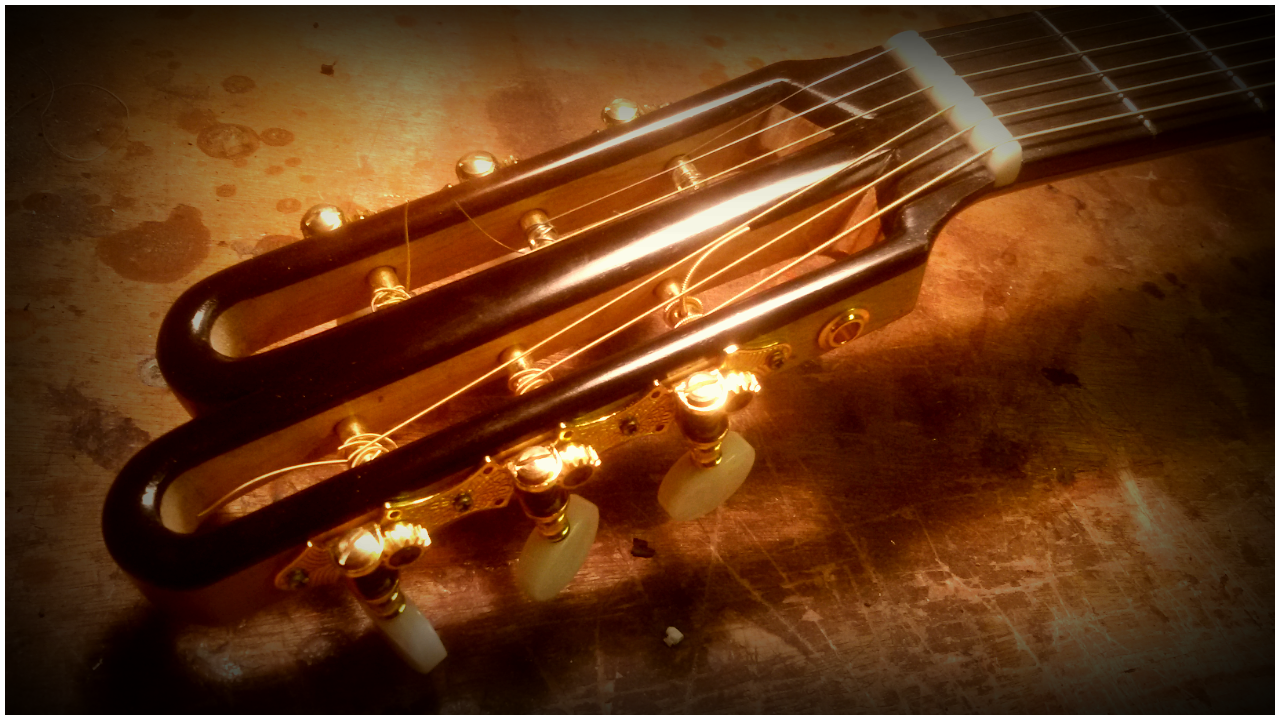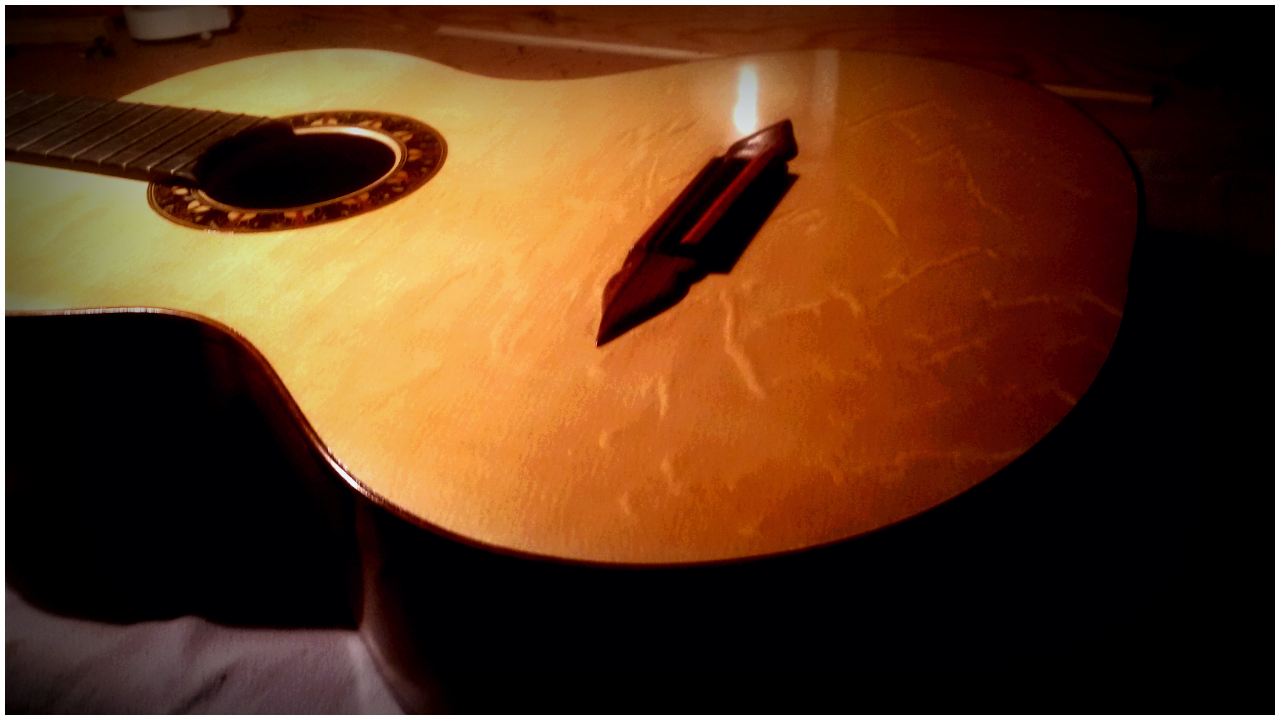The first thing my teacher of Guitar making told me was, 'Don't make guitars if you want to make money.' Another time, he likened making a guitar to going in to battle, which I found strange at the time - but it turns out that he was right on both counts.
Now, after fifteen years of making guitars by hand, using almost entirely hand tools and traditional methods, I'll tell you this for nothing: It's not easy. To do it well is even harder. To do it perfectly is impossible.
But still I continue to build guitars. People often ask me where I learned my craft. I tell them I'm still learning, because that's the truth. Why I do it is another question. All sorts of reasons, but mainly because that's what I do. It's a very specialised sort of knowledge to accumulate - how to take some bits of wood and turn them into a guitar that will sound good - and once you've begun to aquire it, it not really very useful for anything else - apart from building guitars.
Every guitar is a new learning process - another journey, with it's own challenges, mistakes and lessons to be learned or relearned. And at the end of it, you put the strings on and then hear how it sounds. Up until that moment it's a mystery. You can just try your best and hope for the best. The true test and the reward is in the sound.
People see that I don't make much money doing what I do, so they offer to help me by suggesting that I try making children's toys/furniture/other wooden objects that aren't guitars - or else automate my guitar making process so that I can make lots of guitars quickly, at the same time. I sincerely thank everyone who has ever given me such advice. It is good advice. My life would certainly be more comfortable and easier in many ways, if I ever took heed of good advice.
Nevertheless, here I am, a guitar maker (because I didn't listen to good advice - even that of my guitar making teacher - not to make guitars) so I'll tell you two important lessons I've learned, at least so that it may help you to build better guitars, if anything.
- DON'T THINK ABOUT TIME
OK, that's not strictly true.
Actually you need to think about time all the time - especially if you don't want to waste time - and Time, after all is the most precious thing that any of us have - finite and limited as it is. You can always make more money, but when your time runs out, that's it - it's gone. But you don't need to worry about that. In fact you mustn't think about that while you're making a guitar, except in a purely philosophical way.
You need to be aware of time so that you know when the glue or the polish is dry enough to go onto the next stage. That's all. You need to know how long that will take - dependant on weather, temperature, type of wood, all sorts of things.
Apart from that, don't think about time.
It will take as long as it takes. That's all you need to know about Time.
- DON'T THINK ABOUT MONEY
This is closely tied in with Number 1.
There was a time that I spent about three days and nights carving the headstock for a guitar. Not the only time either. Clearly an insane thing to do - especially with a family to feed, bills to be paid, etc.. It wasn't even as if I had a buyer for that guitar. It wasn't as if it would improve the sound of the guitar either. But I knew that I had to do it - finish it to my satisfaction - otherwise it would have been unfinished and I would have been unsatisfied with my work because it would have been finished in a rush..
I should point at at this point, that I'm not a perfectionist. Far from it. I don't think perfection is possible, and for me it's not my objective. I've see a few craftspeople who get quite close to it, through years of disciplined practice. Japanese masters in woodwork are the most skilled I've seen - and much can be learned from them in terms of focus, precision, patience, skill and technique.

When students come to me to learn to build a guitar - there is a point, after about ten days of really challenging, focussed work - after all of the pieces of the guitar (this can be hundreds of pieces of wood in total) have been prepared and finally all glued together, so that it now looks like a guitar - they get a great rush of excitement and ask 'Is it nearly finished now?' and I have to tell them - it's about half way. Half of the work is in the finishing. In fact, you could easily spend the rest of your life finishing that one guitar. But you've got to stop at some point and say 'that's it! I have done my best. It's finished!'.. And move on. Otherwise you'd defeat the purpose of making the guitar in the first place, because if it was never finished, no-one would play it - and you'd never make the next one, which most likely would be even better than this one.
The trick, the skill, the judgement.. whatever it is.. is knowing when to stop and when to carry on. That's all there is to it. Not just in guitar making either.

